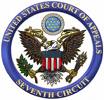Seventh Circuit Criminal Case of the Week: “A Total Breakdown of Justice”

In January 2003, Milwaukee police officers found two guns in the home of the estranged wife of Rashid Salahuddin. Salahuddin himself was arrested shortly afterwards. Now, more than six years later, after many rounds of legal proceedings in state and federal court, Salahuddin still awaits final resolution of criminal charges stemming from the discovery of the guns.
In October 2008, Judge J.P. Stadtmueller of the Eastern District of Wisconsin summoned the United States Attorney and the Federal Defender to his office for an off-the record conversation about the case, which he characterized as “a total breakdown of justice.” Following this conversation, the government asked Stadtmueller to recuse himself from the case. When Stadtmueller refused, the government initiated proceedings in the Seventh Circuit to compel the district judge’s removal.
The Seventh Circuit has now agreed with the government that Stadtmueller’s statements at the October 2008 meeting required his recusal. In re United States of America (No. 09-2264) (Ripple, J.).

 Since early 2008, there has been an interesting project in IP philanthropy. At that time, the World Business Council for Sustainable Development (WBCSD) established an initiative called
Since early 2008, there has been an interesting project in IP philanthropy. At that time, the World Business Council for Sustainable Development (WBCSD) established an initiative called 
